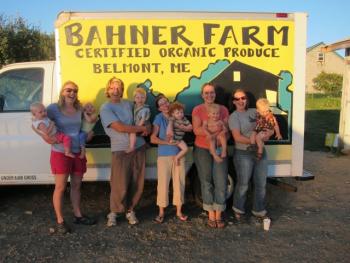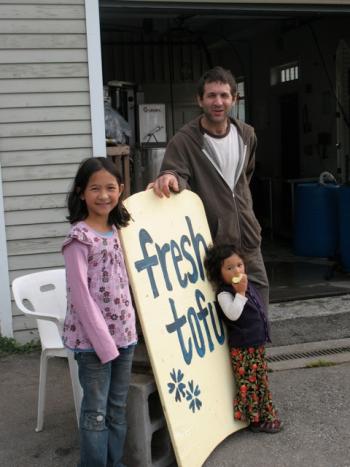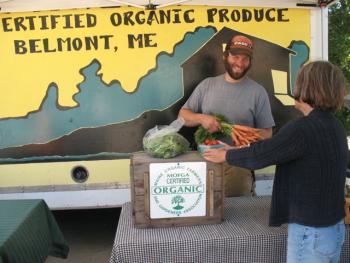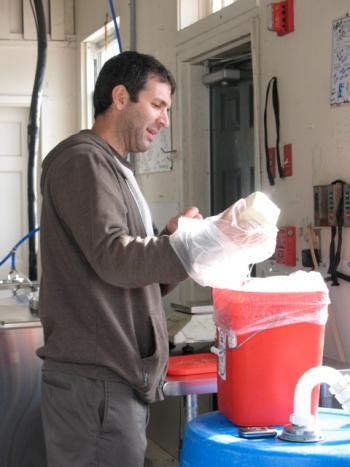Does Maine have potential to again be New England's bread basket?
BELFAST — Alongside the slow food movement in Maine, there is now a “slow money” movement that is rapidly gaining momentum. More than 150 people gathered at the Hutchinson Center, in Belfast, Nov. 15 to discuss how Maine can revive its economy by connecting more local food producers with investors concerned about healthy, resilient communities.
Since Slow Money Maine began in January 2010, the loose-knit volunteer group has catalyzed the transfer of $4 million dollars into Maine’s agricultural sector, mostly through loans and grants to farms and food businesses. Much of this support comes from individuals who prefer to invest in people and places close to home, rather than the stock market. Slow Money Maine funds have gone statewide to farms, processors and other food businesses, many of them during start-up phases when traditional financing is difficult.
Jeffrey Wolovitz, who runs Heiwa Tofu with his wife Maho Hisakawa, recently relocated their four-year-old business to Coastal Farms and Foods, Inc., a food processing/incubator facility in Belfast that has received SMM support. On Thursday afternoon, he showed his expanded production facility to a diverse crew of Slow Money Maine participants. Through Slow Money investors, Heiwa Tofu has received a line of credit to help cover its annual soybean purchase, and a five-year equipment loan. Wolovitz appreciates how SMM is strengthening the local food economy.
"It’s pretty amazing the connections and networks that have popped up,” he said.
Slow Money Maine considers the needs, not just of individual borrowers, but of food systems as a whole. Much discussion Thursday centered on the potential for Maine to become again, as it was in the early 1800s, the bread basket of New England. There were 524 operating grist mills in that era, but the infrastructure for receiving, segregating, processing and storing grains has long since gone.
“Now we’re entering a period of reclaiming our state and region’s grain heritage, driven by consumer demand for organic grains of higher quality and nutritional value,” said farm consultant Mark Fulford.
Many growers who presented on Thursday, like Jed Beach of Lincolnville’s Ararat Farms, are committed both to organic practices and profitability, elements they see as essential to sustainable agriculture. Slow Money investors look for innovative and entrepreneurial operations with ambitious business plans based on detailed market knowledge. Through the Slow Money Maine network, food enterprises receive far more than business loans, often gaining valuable personal connections and technical support.
While only in its third year, Slow Money Maine is already starting to spawn related local investment initiatives, like the “No Small Potatoes” Investment Club in southern Maine and a similar club forming in the Midcoast. The Midcoast investment club will soon be offering loans ranging from $5,000 to $25,000 to small-scale, organic (or transitional) farms with sustainable practices.
“Slow Money Maine forges wonderful connections with so many benefits, ” said the group’s Coordinator, Bonnie Rukin of Camden. “When we keep money locally, even small loans make a great difference.”





























